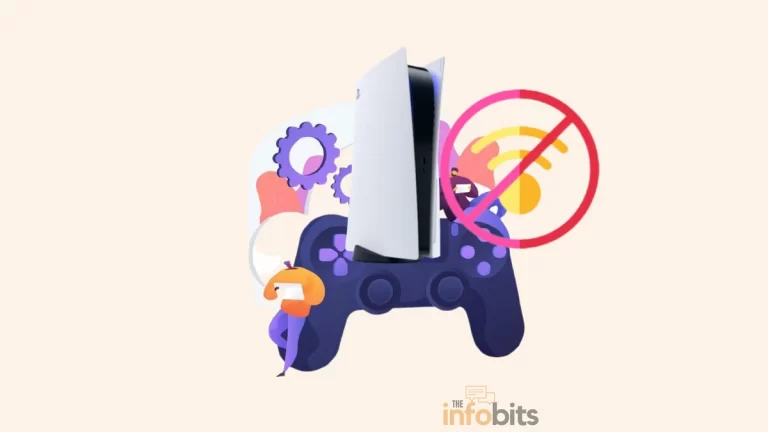Is Abandonware Safe and Legal?
When looking for older games, you may come across the term “abandonware,” or you may have used it yourself.
Do you know what abandonware is?
Abandonware is a word used to describe software that is no longer supported or actively developed by its developers.
It is popular among nostalgic gamers and technology enthusiasts. While abandoned software may have emotional value and provide a peek into the past, there are serious concerns about its legality and safety.
Is abandonware safe and legal to download?
This article digs into the complicated world of abandonware, investigating its legal position, potential dangers, and the ethical controversy over its use.
Introduction to Abandonware
Numerous websites sell free versions of previously paid software, as well as the most recent premium versions, with little to no claim of legality or hesitation.
Torrent and Warez sites that sell paid software and media are illegal in most countries, regardless of how people feel about them, and they are stealing other people’s property.
Most PC gamers are as interested in classic games as they are in the most recent modern games.
While Crysis is beautiful and entertaining, we all know that playing some of the older Infocom games can bring back a lot of memories.
The main issue is that these older games may no longer be supported or are no longer available from the developer or distributor.
However, some websites provide enjoyment to gamers who want to obtain their classic games at a low cost or even for free.
These websites are classified as Abandonware sites, such as Abandonia, which offer a diverse range of games for free download to satisfy a wide range of gamers.
Most of these websites have been up and running for a long time without any incidents. As a result, various questions will undoubtedly arise in your mind, such as whether or not abandonware sites are legal or whether can we rely on these abandonware sites to download software or games.
Let us go over these issues in depth.
Related: How to Clear Discord Cache in Simple Steps
What Is Abandonware?
Our introductory words may have given you a general idea of what abandonware is.
Many of our readers may be aware of or have enjoyed, the benefits of abandonware. In a nutshell, abandonware is a game or software that is no longer available for purchase or is held by developers or companies that have gone out of business.
The term abandonware refers to software that has been abandoned.
Of course, abandonware is a product, typically software or a game, that has been abandoned by its owner and producer and for which no official support is available.
One thing to keep in mind is that abandonware is usually still copyrighted, but the owner or distributor may not be keeping track of any infringements.
The person or company that owns the rights to the software has generally gone out of business or has been sold to a new owner who isn’t interested in continuing development, which is why abandonware was created.
As a result, this abandoned software or game no longer receives active support or has its copyright actively enforced.
Abandonware is a controversial topic in the PC gaming community due to its contentious nature.
Some creators are happy to give away the rights to their old valuable creations and allow users to play them for free, but others aren’t as generous.
Some horrific corporations will gladly track you down and sue you for downloading their old games.
As a result of a formal announcement or developer collaboration, some software becomes abandoned and ends up on the abandonware list.
The best example of this is the video game Descent, which released its source code in 1997. Many other games have followed a similar path.
Is it Legal to Use Abandonware?
Did we get the definition of Abandonware?
Next, we want to know, is it legal to obtain abandoned software? This is a common question among gamers who want to play old classic games.
Without a doubt, we can answer this question in a single word: Abandonware is illegal.
Because it is a copyrighted work, it does not become public property immediately, even if the creator or distributor abandons it.
As in other cases, the work’s copyright remains in effect until it expires, which may vary slightly between countries. However, in most cases, a video game’s copyright is valid for at least 70 years, and in some cases, it can be extended up to 125 years.
As a result, downloading and using abandonware remains illegal as long as the game is copyrighted and the rights holder has not distributed or declared it as freeware or a public domain.
In this context, you may be wondering how websites like Abandonia continue to exist.
Isn’t there a steady upsurge of lawsuits arriving at their digital door?
However, you should be aware that the punishment is only imposed if you are caught and the opposing party is willing and able to make the charge apply, as is the case with most laws.
This is why, even though abandonware is illegal, online distribution is not being stopped and prosecuted.
The majority of the materials on abandonware sites no longer have an owner who can actively enforce copyright and monitor these sites.
In other cases, the owner continues to remain, but the copyright is not enforced because the copyright owner does not want it to be.
The iconic action-adventure game System Shock, for example, can be found on many abandonware sites, although the current copyright holder, Electronic Arts, does nothing about it because they are not interested in enforcing the copyright.
Is There Any Problem with Using Abandonware?
Is downloading old games legal?
To address this specific issue, we can deliver only one answer: it depends.
As previously stated, downloading abandonware is illegal. On the other hand, we can certainly use it conditionally.
Except in a few cases where it is unquestionably legal or illegal. The legality of abandoned software varies in general.
To understand what qualifies a game as abandonware and the ethics of the entire situation, it’s necessary to first understand what qualifies a game as abandonware.
While most people think of abandonware as an old game that can be downloaded for free, it isn’t quite that simple; there are several types of abandonware games.
Are you, on the other hand, likely to have cops show up at your door? Do you want to end up in front of a judge for violating someone’s copyright? That is highly unlikely.
If the software or game you discovered on the abandonware site is freeware, you can download and use it without difficulty. However, if it is copyrighted material, you are in trouble.
We’ve seen why a game is classified as abandonware when it’s so old that a company no longer supports or sells it.
Zak McKracken and the Alien Mindbenders, one of Lucasart’s early graphics adventures, is a good example of this.
Except for eBay, Zak McKraken is no longer available for purchase, and Lucasarts no longer maintains it in any form due to its age and obsolescence.
The use of abandonware by a large number of gamers does not mean you will not be sued for it. The lack of legal action could be because the company that owns the copyright is tolerant or unaware that it is being used in this manner.
Furthermore, even if they intend to sue you, it is not financially feasible to hire a team of lawyers to sue you over an outdated game or software. So how comfortable you are with taking such a minor risk as using abandonware is entirely up to you.
It is worth noting that, even though using abandonware is illegal, no judicial prosecutions have been reported.
We couldn’t think of a single instance where someone had been prosecuted for downloading and playing an abandoned game.
Typically, before filing a case, companies seeking to enforce their existing copyright will send a warning letter requesting that their creation be removed from an unauthorized location.
When this occurs, the abandonware site responds by removing the infringing title from there. Taking a publisher to court in this context is a waste of time and money because these titles are not on the market.
More interestingly, those abandonware sites that continue to provide all abandonware titles may be exploiting loopholes in international law by hosting their websites in countries where piracy, copyright enforcement, and other issues are less stringent.
There are numerous examples, such as Home of the Underdogs, which was founded in Thailand, and Abandonia, which is based in Sweden.
However, if a developer distributes software for free, the overall picture changes. Several games have been distributed in this manner under the GNU General Public License, Creative Commons, and other publicly available licenses, though they are few and far between.
After a game has been distributed in this manner, it cannot be recovered, but the creator may retain copyright on original or updated versions of the game.
Another explanation for the lack of legal precedent could be a desire for goodwill. ‘Electronic Arts’ has the legal strength to have every free copy of System Shock removed from the shelves.
But what would be the point? In terms of public perception, legal action could backfire.
Another significant difference is that abandonware sites no longer exist for titles that are important to the creators, such as the Ultima series.
Due to the practical legal barriers listed above, the abandonware site appears to be fairly secure from a legal standpoint.
Those who distribute abandoned software are unlikely to face legal consequences if they comply with any cease-and-desist orders.
If you want to take abandonware seriously and avoid receiving angry emails from publishers, you’ll need to do some licensing research.
Is Abandonware Safe?
As we’ve seen, there are plenty of abandonware websites available like My Abandonware or Abandonia, each with a comparable selection of old games to download.
In this context, numerous questions may arise.
Isn’t it risky to download abandonware from these websites?
Is My abandonware safe?
Is Abandonia safe?
The general question is: are old games safe to download? Or is abandonware safe?
The source of the solution for these queries depends on the website from which you are downloading. Major abandonware sites, such as MyAbandonware and Abandonia, which serve thousands of users daily, are safe.
You won’t have to search the internet for a game on a shady website because these websites have almost every abandonware title.
Related: A Genuine Comparison of Malwarebytes Vs Kaspersky
Abandonware Sites and Downloads: Why Do People Do It?
Of course, abandonware is illegal. That’s completely understandable. However, there are additional reasons why abandonware is beneficial from a different standpoint. We’ve already seen the consequences of these abandonware sites.
The main attraction of these sites, however, is that they can protect abandoned software or games. Many games would otherwise vanish into the digital emptiness.
We must thank abandonware sites for preserving these old classics and making them available for anyone to explore.
Some organizations, such as the Internet Archive and the British Library, are working to preserve historical games and their source code, but this type of effort is very rare. The abandonware site option keeps even the most ancient titles alive.
Another factor to consider is the wishes of the game developers. The majority of game developers no longer rely on previous game revenue to support their careers.
Because the majority of the creative teams behind all of those games have long since left the company that released them, royalties aren’t being paid to those who deserve them.
There is still a high demand for abandonware games. Older generations of gamers want to re-experience their favorite games. Younger gamers are discovering historical classics via abandonware sites.
However, you’re unlikely to get in trouble if you download an old game, run it in an emulator, and play it indefinitely.
Summary
The issues and grey areas of abandonware legality will not change as a result of copyright law. Games that have been reloaded and repacked are the same.
The boundaries between legality, morality, and accessibility are blurred in the field of abandonware.
While it is normal to want to relive sentimental events or research the past, it is important to respect the rights of copyright holders.
You may traverse the difficulties of abandonware with caution and responsibly by studying the legal status of abandonware, safeguarding your computer when downloading, and exploring alternatives such as emulators and legitimate re-releases.
Frequently Asked Questions
Is downloading and using abandonware legal?
The legal status of abandonware is a complicated and controversial issue. While some claim that abandoned software is legally unclear, it is vital to remember that copyright rules still apply. Downloading and using abandonware without the requisite authorization may still be deemed an infringement of intellectual property rights. Before starting, it is recommended that you study the individual software and its copyright status.
Is there any risk in downloading abandoned software?
Yes, there are threats connected with obtaining abandoned software. One of the main worries is the widespread presence of malware or security dangers in downloaded files. Abandoned websites may lack strict security measures, making them an easy target for criminal attackers. When downloading abandonware, it is critical to exercise caution, utilize reliable sources, and keep your computer’s security software up to date.
What are some secure substitutes for downloading abandonware?
There are several risk-free alternatives to downloading abandonware. Emulators and virtual machines can be used to simulate the experience of running outdated software without the need for potentially infringing files to be downloaded. Furthermore, software developers and publishers frequently provide official re-releases or remakes of older games and programs, giving legal and secure solutions for individuals who want to relive their youth. These options provide a more secure method to enjoy old software without raising legal or security problems.
What are the ethical implications of abandonware?
The ethical discussion regarding abandonware centers on topics such as copyright violation and the support of software creators and publishers. While supporters of abandonware claim that the program is no longer commercially available or supported, it is critical to respect the original developers’ intellectual property rights. Ethical issues motivate people to look for legal alternatives, such as emulators or legitimate re-releases, to assist creators and publishers while still enjoying old games.
Also, if possible, look for a paid version of an old game on a site like GOG.com. However, we must not overlook the benefits and drawbacks of abandonware.
Do like and follow us on Facebook and Twitter for regular updates. In addition, we ask that you bookmark this page for future reference.
Sign up for our free newsletter as well to receive fresh information right in your inbox and stay informed technically.







